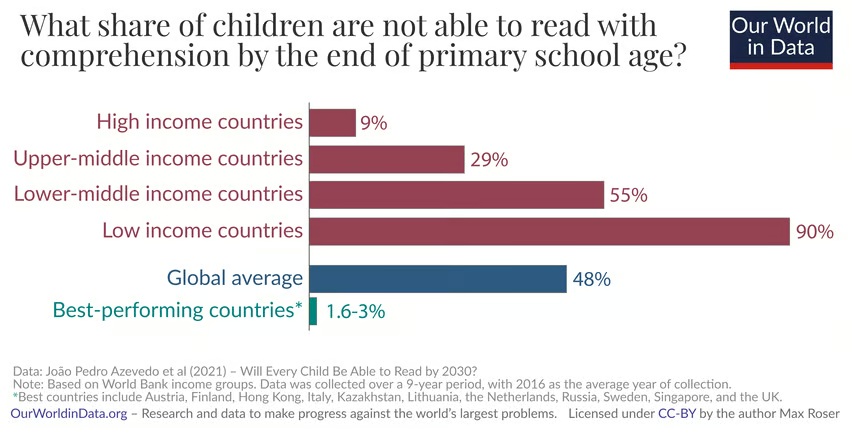3
you are viewing a single comment's thread
view the rest of the comments
view the rest of the comments
this post was submitted on 10 Jul 2025
3 points (100.0% liked)
Furry Scientists
203 readers
1 users here now
A community for furries who are interested in SCIENCE!
Share anything related to science here :3
founded 2 years ago
MODERATORS

It's interesting (though not surprising, I guess) that the impact of economics on the average level of reading comprehension (and presumably other markers of education) per country is the same as it is within those countries. If you take any country that was analysed in this study and look at the distribution of reading comprehension levels in it, the distribution will look roughly the same: those with high socio-economic status (relative to the rest of the population) get high scores, and the poorest tend to get the worst scores.
It'd be interesting to know what the public attitude to reading and education in general in the analysed countries is and how that interacts with economic factors. Students' in-school performance is often influenced by their parents' attittude towards eduction (e.g. education as a means to an end vs education having intrinsic value even without any specific ends), and I wonder how big the impact of society's attitudes is when compared to economic factors.
Not necessarily, it looks like countries fall into three categories: egalitarian outcomes, ones where wealth correlates closely with results and finally where results improve with wealth until you go from upper middle class to upper class, where results fall off.
The article mostly correlates it with state level income
But the drop off for the upper class would indicate that social factors also influence outcomes.